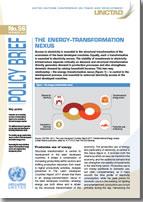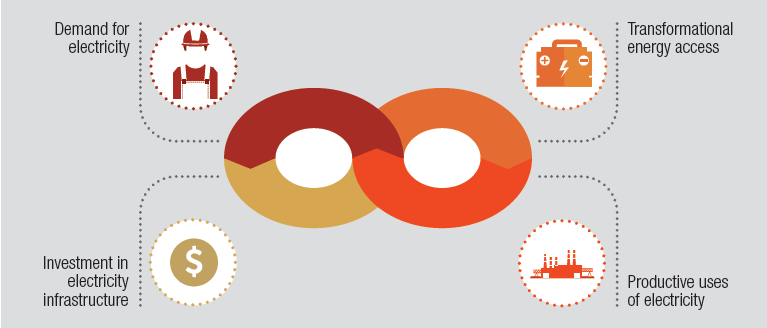
Access to electricity is essential to the structural transformation of the economies of the least developed countries. Equally, such a transformation is essential to electricity access.
The viability of investments in electricity infrastructure depends critically on demand; and structural transformation directly generates demand in production processes and also strengthens domestic demand by raising household incomes.
This two-way relationship – the energy–transformation nexus (figure 1) – is central to the development process, and essential to universal electricity access in the least developed countries.
The energy–transformation nexus

Key points:
-
Productive use of electricity can have a transformational impact on the economies of the least developed countries.
-
The additional demand it generates can also help make investments in electricity infrastructure viable.
-
The resulting energy–transformation nexus is central to both development and modern energy access.
-
Harnessing this nexus effectively requires transformational energy access and complementary development policies.


